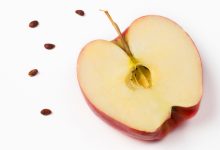The Benefits of Radhish Seeds (Habb al-Rashad)
Radhish seeds, commonly known as Habb al-Rashad or by their scientific name Lepidium sativum, have been utilized for centuries in traditional medicine and culinary practices. These tiny seeds pack a wealth of nutrients and bioactive compounds, making them a significant addition to a health-conscious diet. This article delves into the myriad benefits of Radhish seeds, exploring their nutritional profile, medicinal properties, and potential applications in modern health practices.
Nutritional Profile
Radhish seeds are small yet mighty, offering a rich array of nutrients. They are particularly high in:
- Vitamins: Radhish seeds are a good source of vitamins A, C, and several B vitamins, including folate, which plays a critical role in DNA synthesis and repair.
- Minerals: They are rich in essential minerals such as calcium, magnesium, phosphorus, and potassium, all vital for maintaining overall health.
- Proteins and Amino Acids: These seeds contain a considerable amount of protein, contributing to muscle repair and growth. They are also a source of essential amino acids.
- Antioxidants: Radhish seeds contain various antioxidants that help combat oxidative stress in the body.
Health Benefits
-
Anti-inflammatory Properties: Radhish seeds possess potent anti-inflammatory effects, making them beneficial for conditions characterized by chronic inflammation. Compounds such as glucosinolates in these seeds may help reduce markers of inflammation in the body.
-
Digestive Health: The high fiber content of Radhish seeds aids in digestion and promotes regular bowel movements. Fiber is crucial for maintaining gut health and can prevent issues such as constipation.
-
Blood Sugar Regulation: Preliminary studies suggest that Radhish seeds may help in regulating blood sugar levels. They may enhance insulin sensitivity and contribute to more stable blood glucose levels, making them a potential ally for individuals with diabetes.
-
Cardiovascular Health: Radhish seeds may promote heart health by improving lipid profiles and lowering cholesterol levels. The presence of omega-3 fatty acids, alongside fiber, can help reduce the risk of cardiovascular diseases.
-
Antimicrobial Effects: Research indicates that Radhish seeds exhibit antimicrobial properties, which can help in combating various pathogens. This makes them a potential natural remedy for infections.
-
Skin Health: The antioxidants present in Radhish seeds can contribute to skin health by combating free radicals that cause skin aging. They may also promote wound healing due to their anti-inflammatory properties.
-
Weight Management: Due to their high fiber content, Radhish seeds can enhance satiety, making them a valuable addition to a weight management regimen. The feeling of fullness can help reduce overall calorie intake.
Culinary Uses
Radhish seeds can be incorporated into various dishes. They can be consumed raw, ground into powder, or used as an oil. Common culinary applications include:
- Salads: Sprouted Radhish seeds add a crunchy texture and a peppery flavor to salads.
- Smoothies: Ground seeds can be added to smoothies for a nutritional boost.
- Baking: Incorporating Radhish seed powder into baked goods can enhance their nutritional value.
How to Use Radhish Seeds
To maximize the benefits of Radhish seeds, consider the following methods of consumption:
- Sprouting: Soaking the seeds and allowing them to sprout increases their nutrient bioavailability.
- Grinding: Grinding the seeds into powder can be an effective way to incorporate them into various recipes.
- Infusion: Steeping seeds in hot water creates a nutritious tea that can be consumed daily.
Precautions
While Radhish seeds offer numerous health benefits, it is essential to consume them in moderation. High doses may lead to gastrointestinal discomfort. Individuals with specific health conditions or those taking certain medications should consult healthcare professionals before incorporating Radhish seeds into their diets.
Conclusion
Radhish seeds are a nutritional powerhouse, offering a variety of health benefits ranging from anti-inflammatory properties to blood sugar regulation. Their versatility in culinary applications makes them an easy addition to any diet. As more research unfolds regarding their medicinal properties, Radhish seeds may prove to be an ultimate asset in promoting holistic health. Incorporating these seeds into daily meals can lead to improved health outcomes, making them a worthy consideration for anyone looking to enhance their dietary regimen.

